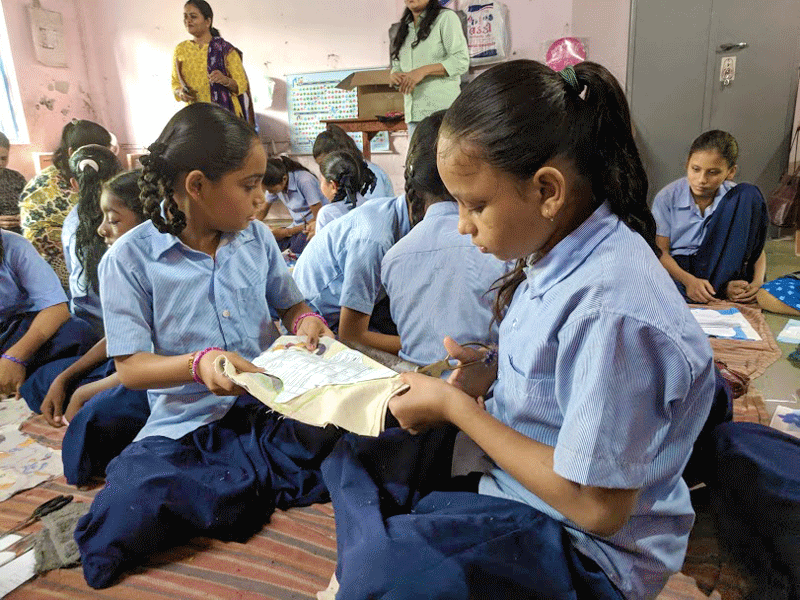Do you know which sanitary napkin your wife uses and the contents of that pad,” asked Dr Amisha Mehta, member of RC Vapi Riverside, RI District 3060, while addressing 250 men from Anchor Panasonic India Ltd, in Daman. She has initiated Project Red Revolution to make both men and women aware of menstrual hygiene. It is important to talk to the men and it has to start at an early age, she says. “A well-informed boy becomes a caring son, brother, and husband. Imagine what a wonderful father he’d make!”

She says that an average woman spends 10 years of her life menstruating. “We have to make it a priority for women and girls to access with dignity the necessary knowledge, facilities and create a healthy social environment to manage menstruation.” Together with members of 100 clubs from her district, she has started this “revolution to open the minds of men and women and help them talk about it and find an eco-friendly solution, in the process liberating menstruating women from the clutches of superstitions and help them live a healthier, happier life.”

At a school, during an interactive session with teenaged girls, she was surprised to get such answers on menstruation: ‘Mama told me this isn’t my age to know about it. I will know when I grow up. The teacher too wasn’t wiling to talk about it. In most countries, menstruation has a cultural taboo which translates into inadequate menstrual hygiene management. When is the right time to talk to girls about it? The answer is now!”
There is an absence of guidance, facilities, and materials for women and girls to manage their menstruation in low- and middle-income families. “So we decided to talk to such women and help them understand the science behind menstruation and help them make their own pads.” Since there is limited access to affordable, hygienic sanitary products, it makes the management of this cycle uncomfortable and unhygienic for many girls/women.
With the help of the First lady of RID 3060, Swati Shah, reusable cotton pads were got in bulk from Unipads India, a reusable sanitary pad manufacturer from Ahmedabad. Over 1,000 packets were distributed to school girls and working women. Reusable sanitary pads, says Swati, are getting more popular. “They are healthy, affordable and sustainable.”

Amisha says that as sanitary pads are listed as ‘medical products’, maintaining quality is a problem in India. Toxic material and artificial colours, polyester, adhesives, polyethylene, etc are used, and can cause medical complications such as hormone disruption, cancer, birth defects, dryness, and infertility.” She believes that making the switch from the traditional disposable napkins to reusable cloth sanitary pads may sound daunting, “but it is probably the wisest decision in the interest of your body and the planet.”
She stumbled upon the reality of feminine hygiene products four years ago when her daughter who was studying in a residential school, “told me about her roommate who made her own cloth pads. Living in an age and time where you have a use and throw pad why would anyone put in effort and time to make a cloth pad, she wondered, and learned from the mother of the girl that the readily available pads were affecting her child’s health.
Amisha’s four-year research helped in shaping Red Revolution and now from talking to men and women about menstruation and teaching school girls to make their own low-cost sanitary napkins with available material to distributing free reusable pads, Rotarians of RI District 3060 have completed 195 workshops spreading awareness to 65,060 individuals.





